Filter by
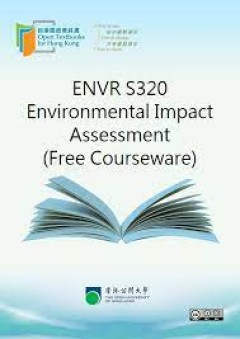
Environmental Impact Assessment
Environmental impact assessment (EIA) is a widely used tool for assessing the environmental implications of projects, policies and plans. It is also an integral part of the decision-making processes involving environmental issues. With the growing importance of environmental protection and an awareness of pursuing sustainable development, applying EIA techniques has become more important and co…
- Edition
- -
- ISBN/ISSN
- -
- Collation
- -
- Series Title
- -
- Call Number
- 500 OPE e
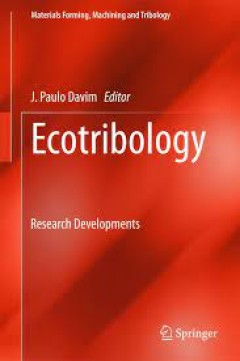
Ecotribology
This book presents resent research advances in the area of eco-triobology. In the last years, eco-tribology or environmentally friendly tribology has gained increasing importance in sustainable engineering. Environmentally acceptable tribological practices save resources by optimizing product usage and reducing energy. This book covers current developments in all areas covered by the term eco-t…
- Edition
- 1
- ISBN/ISSN
- 978-3-319-24005-3
- Collation
- -
- Series Title
- -
- Call Number
- VII, 174
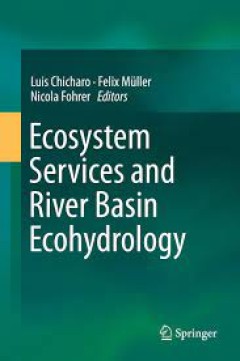
Ecosystem Services – Concept, Methods and Case Studies
Nature provides us with many services seemingly for free: recharged groundwater, fertile soil and plant biomass created by photosynthesis. We human beings draw extensive benefits from these “ecosystem services,” or ES – food, water supply, recreation and protection from natural hazards. Major international studies, such as the Millennium Ecosystem Assessment, have addressed the enormous r…
- Edition
- 1
- ISBN/ISSN
- 978-3-662-44142-8
- Collation
- -
- Series Title
- 53 b/w illustrations, 14 illustrations in colour 53 b/w illustrations, 14 illustrations in colour 53 b/w illustrations, 14 illustrations in colour 53 b/w illustrations, 14 illustrations in colour
- Call Number
- XII, 312
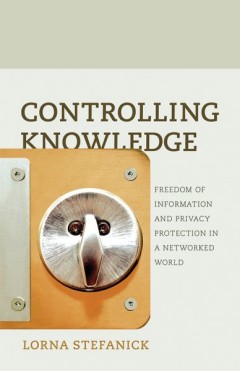
Controlling Knowledge Freedom of Information and Privacy Protection in a Net…
Digital communications technology has immeasurably enhanced our capacity to store, retrieve, and exchange information. But who controls our access to information, and who decides what others have a right to know about us? In Controlling Knowledge, author Lorna Stefanick offers a thought-provoking and user-friendly overview of the regulatory regime that currently governs freedom of information a…
- Edition
- -
- ISBN/ISSN
- 978-1-926836-26-3
- Collation
- -
- Series Title
- -
- Call Number
- -
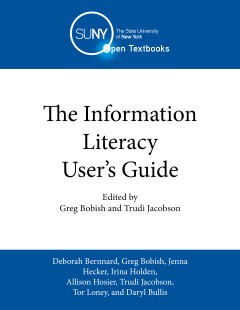
The Information Literacy User’s Guide : An Open, Online Textbook
Good researchers have a host of tools at their disposal that make navigating today’s complex information ecosystem much more manageable. Gaining the knowledge, abilities, and self-reflection necessary to be a good researcher helps not only in academic settings, but is invaluable in any career, and throughout one’s life. The Information Literacy User’s Guide will start you on this route…
- Edition
- -
- ISBN/ISSN
- -
- Collation
- -
- Series Title
- -
- Call Number
- 020 INF
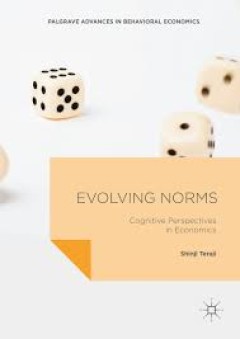
Evolving Norms Cognitive Perspectives in Economics
This book presents institutional evolution and individual choice as codependent results of behavioral patterns. Drawing on F.A. Hayek's concepts of cognition and cultural evolution, Teraji demonstrates how the relationship between the sensory and social orders can allow economists to track social norms and their effects on the global economy. He redirects attention from the conventional focus o…
- Edition
- -
- ISBN/ISSN
- 220220101007
- Collation
- 7 b/w illustrations
- Series Title
- -
- Call Number
- -
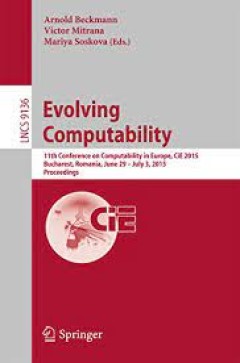
Evolving Computability 11th Conference on Computability in Europe, CiE 2015,…
This book constitutes the refereed proceedings of the 11th Conference on Computability in Europe, CiE 2015, held in Bucharest, Romania, in June/July 2015. The 26 revised papers presented were carefully reviewed and selected from 64 submissions and included together with 10 invited papers in this proceedings. The conference CiE 2015 has six special sessions: two sessions, Representing Streams…
- Edition
- -
- ISBN/ISSN
- 978-3-319-20028-6
- Collation
- 20 b/w illustrations
- Series Title
- -
- Call Number
- -
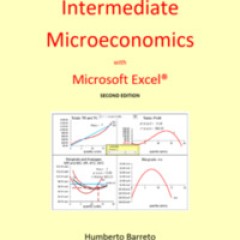
Intermediate Microeconomics with Microsoft Excel
This book is based on the idea that there is a particular framework used by economists to interpret observed reality. This framework has been called the economic way of thinking, the economic approach, and the method of economics. This book is different from the many other books that attempt to teach microeconomics in three ways
- Edition
- 2nd Edition
- ISBN/ISSN
- -
- Collation
- -
- Series Title
- -
- Call Number
- 338 BAR i

Globalizing Domain-Specific Languages
The development of modern complex software-intensive systems often involves the use of multiple DSMLs that capture different system aspects. Supporting coordinated use of DSMLs leads to what we call the globalization of modeling languages, that is, the use of multiple modeling languages to support coordinated development of diverse aspects of a system. In this book, a number of articles desc…
- Edition
- -
- ISBN/ISSN
- 978-3-319-26171-3
- Collation
- XV, 89
- Series Title
- -
- Call Number
- 005.369 GLO
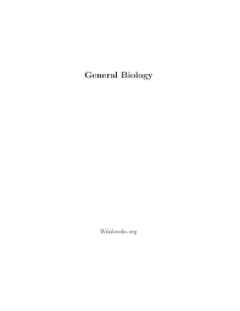
General Biology
The word biology means, "the science of life", from the Greek bios, life, and logos, word or knowledge. Therefore, Biology is the science of Living Things. That is why Biology is sometimes known as Life Science.
- Edition
- -
- ISBN/ISSN
- -
- Collation
- -
- Series Title
- -
- Call Number
- 570 DOE g
 Computer Science, Information & General Works
Computer Science, Information & General Works  Philosophy & Psychology
Philosophy & Psychology  Religion
Religion  Social Sciences
Social Sciences  Language
Language  Pure Science
Pure Science  Applied Sciences
Applied Sciences  Art & Recreation
Art & Recreation  Literature
Literature  History & Geography
History & Geography